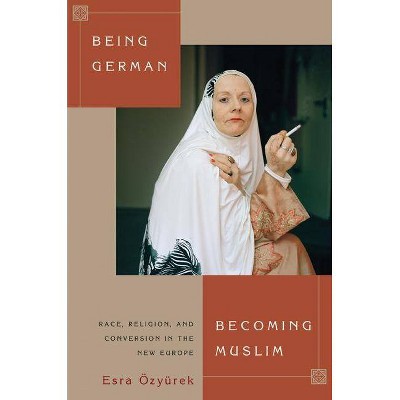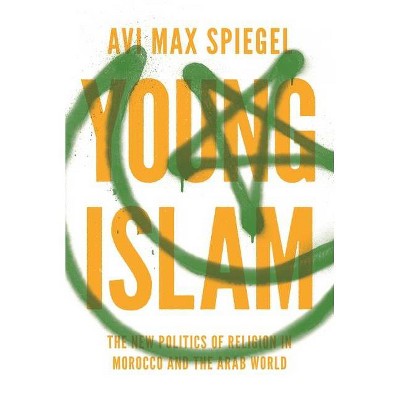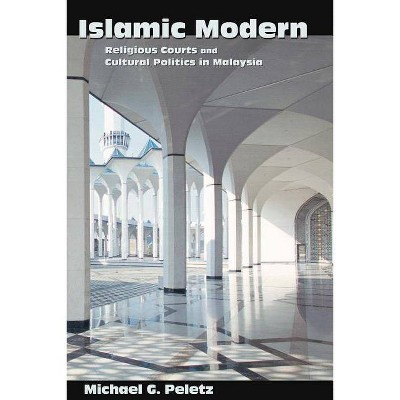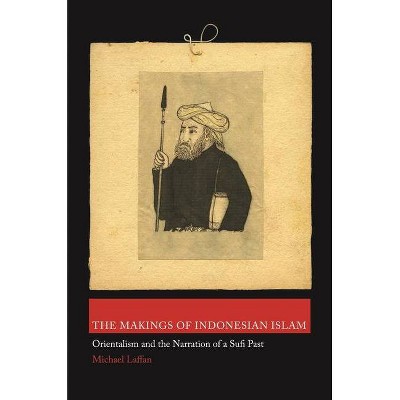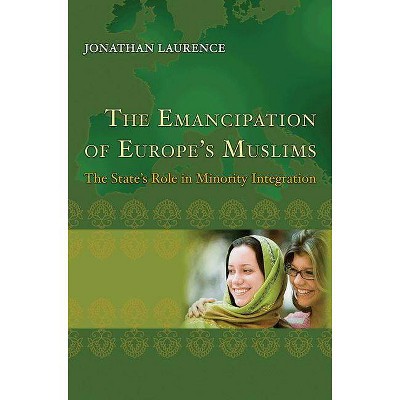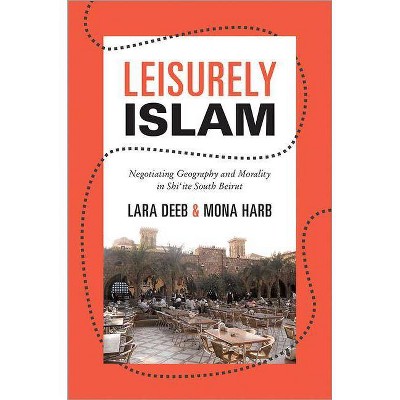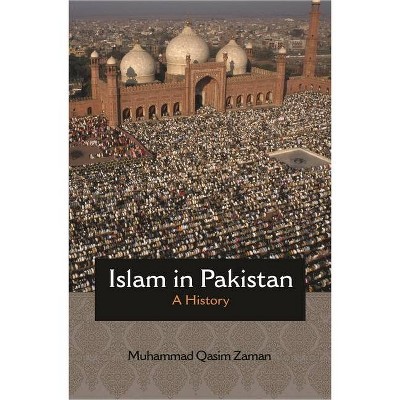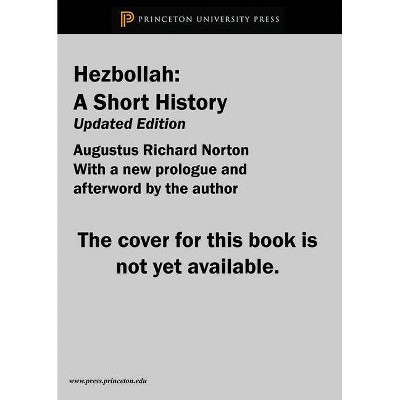Muslim Nationalism and the New Turks - (Princeton Studies in Muslim Politics) by Jenny White (Paperback)
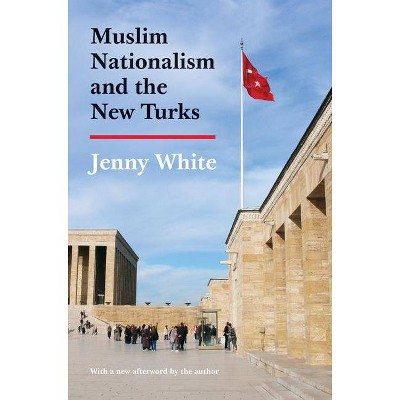
Similar Products
Products of same category from the store
AllProduct info
<p/><br></br><p><b> Book Synopsis </b></p></br></br><p>Turkey has leapt to international prominence as an economic and political powerhouse under its elected Muslim government, and is looked on by many as a model for other Muslim countries in the wake of the Arab Spring. In this book, Jenny White reveals how Turkish national identity and the meanings of Islam and secularism have undergone radical changes in today's Turkey, and asks whether the Turkish model should be viewed as a success story or a cautionary tale. This provocative book traces how Muslim nationalists blur the line between the secular and the Islamic, supporting globalization and political liberalism, yet remaining mired in authoritarianism, intolerance, and cultural norms hostile to minorities and women. <p/>In a new afterword, White analyzes the latest political developments, particularly the mass protests surrounding Gezi Park, their impact on Turkish political culture, and what they mean for the future.</p><p/><br></br><p><b> From the Back Cover </b></p></br></br><p>"Few questions are more urgent, especially since the eruption of the Arab Spring, than whether there is a 'Turkish model' for combining Islam with democracy. White's book, the culmination of many years of research, provides a magisterial guide to the complex reality behind this question. The book is must reading for scholars, members of the policy community, and educated citizens concerned with the interplay of religion and politics in the contemporary world."<b>--Peter L. Berger, Boston University</b></p><p>"White's book is a bold and flawless analysis of the new Turkey's collective unconscious. This exceptional work must be read not only by Western observers but also by the Turks themselves."<b>--Moris Farhi, author of <i>Young Turk</i></b></p><p>"Innovative and original, this is a very important and insightful analysis of contemporary Turkish discourses on what it means to be Turkish and a member of the Turkish nation. White makes the significant argument that the divide in Turkey is not between secularism and religion, but rather is a struggle over what is sacred to the nation and where the boundaries of national identity should be drawn."<b>--Marc Baer, author of <i>The Donme: Jewish Converts, Muslim Revolutionaries, and Secular Turks</i></b></p><p>"Turkey is a country of contradictions, and very few authors have managed to paint so complex a picture of it as White. It is a nation where the secular elite has dogmatically made war on all things Islamic, yet this same elite embraces a Turkish nationalism rooted in the Islamic religion. This is a well-written, engaging, and smart book about contemporary Turkey, one that will be widely read and discussed."<b>--Henri J. Barkey, Lehigh University</b></p><p/><br></br><p><b> Review Quotes </b></p></br></br><br>[E]xcellent. . . . White makes a number of nuanced arguments, most significantly about the secularization of Turkish Islam and what she terms the sanctification of its secular sphere.<b>---Kaya Genç, <i>Los Angeles Review of Books</i></b><br><br>Even for those already familiar with contemporary Turkey, this sometimes disturbing book will be an eye opener<b>---.John Waterbury, <i>Foreign Affairs</i></b><br><br>I would definitely recommend it to both Western scholars and Turks themselves. White's book is an extensive analysis of the Turkish nationality issue. In my opinion it is original that White also researched the female image of 'belonging to the Turkish nation', this is a view one seldom encounters. Inter alia therefore Muslim Nationalism and the New Turks is a valuable addition to other books already written on the subject of Turkish nationality.<b>---Anouk Willemsen, <i>International Review of Turkish Studies</i></b><br><br>It is so well written that researchers and college teachers should be able to use the 264-page publication to help their research assistants and students in a variety of ways.<b>---Md.Mizanur Rahman, <i>African and Asian Studies</i></b><br><br>It's a reviewer's job both to critique the book at hand and to detail and summarize its most salient points. It's a tribute to Boston University anthropologist Jenny White's excellent <i>Muslim Nationalism and the New Turks</i> that it makes the latter extremely difficult to do, simply by doing justice to the enormous complexity of Turkish society.<b>---William Armstrong, <i>Hurriyet Daily News</i></b><br><br>Jenny White has provided readers with insightful and nuanced access to the complexities of Turkish society and a first look at a newly emerging class of individualist Muslim nationalists.<b>---Zeynep Kosereisoglu, <i>Muftah</i></b><br><br>One of ForeignAffairs.com's Best International Relations Books in the Best Books on the Middle East category for 2012<br><br>[A]deeply insightful book. . . . [T]he writing is . . . clear and straightforward, and the book is chock-full of rich tidbits from Turkish society. . . . Filled with insight, <i>Muslim Nationalism and the New Turks</i> is sure to become a leading text for those looking to read the Turkish tea leaves.<b>---David Lepeska, <i>The National</i></b><br><br>[P]iercing and original analysis.-- "Economist"<br><br>[T]his is a good book worth reading by those concerned with Turkey and broader issues of democratic transitions in the Muslim world.-- "Hurriyet Daily News"<br><br>As a student of Turkiye for more than fifty years, I am hopeful the book will be translated into Turkish, and that every Turk on either side of the political, secular, and religious spectrum will read it, especially those in government institutions at all levels, the police institutions, the military, academics, and private sector actors. American academics, military, and political observers of Turkiye, and leaders of MENA countries should not only read it, but should also discuss it extensively. This book offers much-needed constructive insight for understanding the Turks' self-identity.<b>---William A. Mitchell, <i>Journal of Church and State</i></b><br><br>In this multilayered, theoretically sophisticated, and analytically rich examination of the contradictions and convergences found in contemporary expressions of 'Turkishness, ' especially with respect to Muslim and secular forms of nationalisms, White offers an interpretation that reinforces Barth's emphasis on pluralism, choice, and negotiation, while also demonstrating greater understanding and synthesis of the constraints of gender, class, ethnicity, and religion.-- "Choice"<br><br>This anthropological work is grounded in a deep knowledge of Turkey, nourished by White's successive long stays and periods of fieldwork in the country; yet it is also a judicious compilation of key secondary sources.<b>---Clémence Scalbert-Yucel, <i>Times Higher Education</i></b><br><p/><br></br><p><b> About the Author </b></p></br></br><b>Jenny White</b> is professor of anthropology at Boston University. She is the author of <i>Islamist Mobilization in Turkey </i>and <i>Money Makes Us Relatives: Women's Labor in Urban Turkey</i>.
Price History
Price Archive shows prices from various stores, lets you see history and find the cheapest. There is no actual sale on the website. For all support, inquiry and suggestion messagescommunication@pricearchive.us
